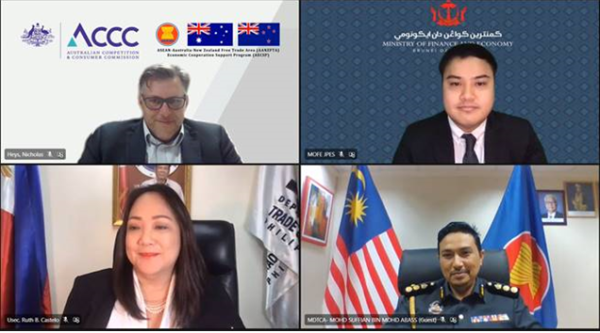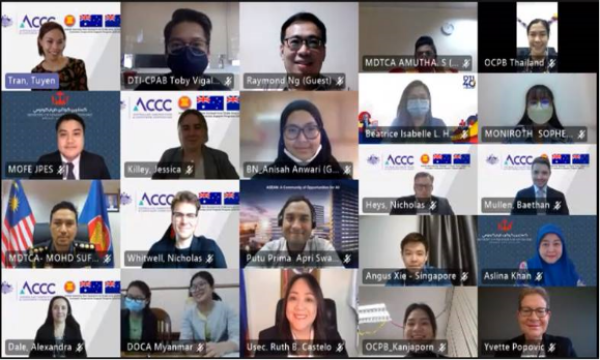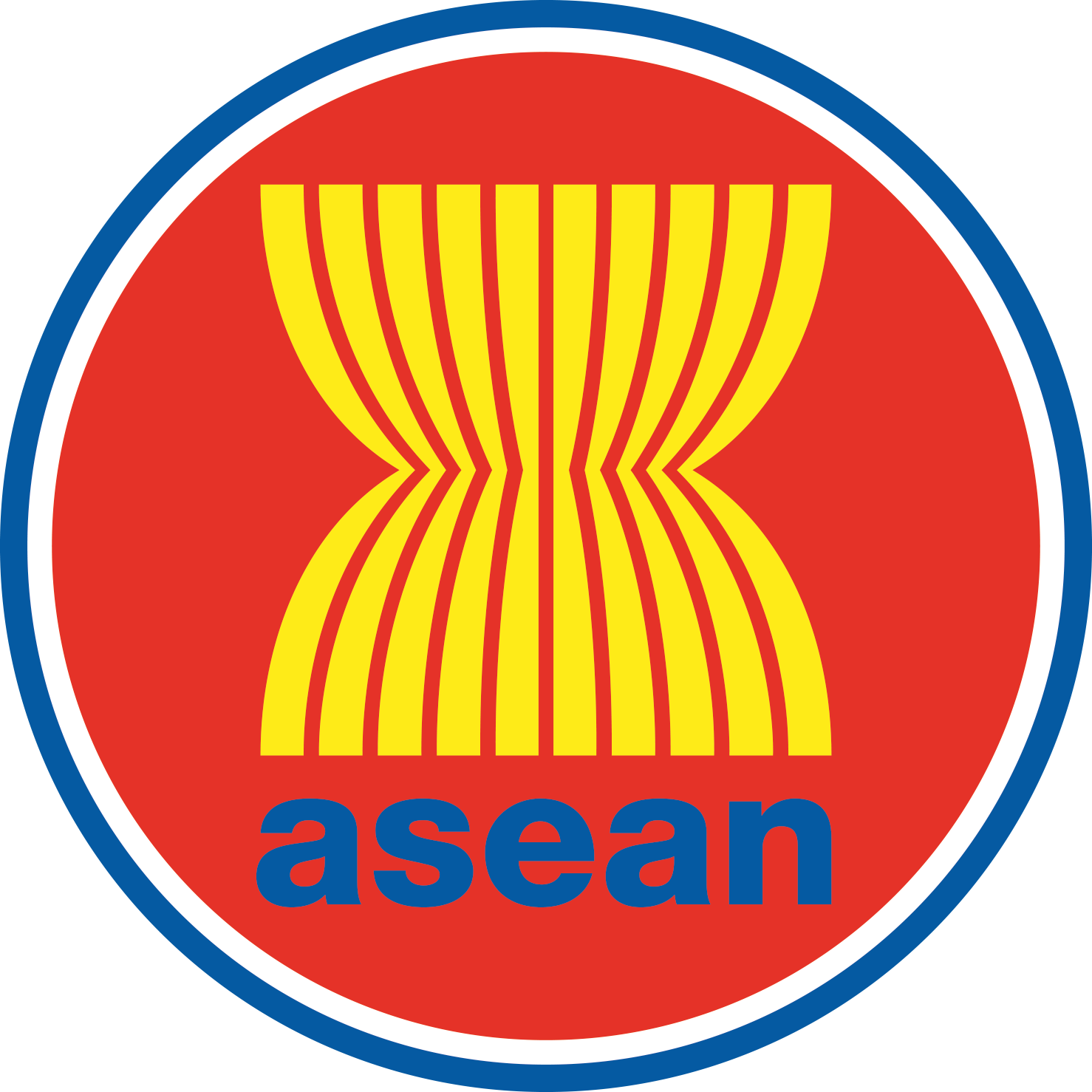AANZFTA consumer protection and competition officials discussed interagency cooperation to promote consumer welfare
ASEAN , 15 December 2021
JAKARTA, 15 December 2021 – Thirty-two consumer protection and competition officials from across ASEAN-Australia-New Zealand Free Trade Area (AANZFTA) convened for an interactive online panel discussion on ‘Interagency coordination and cooperation in pursuit of consumer welfare: lessons from AANZFTA and the COVID pandemic’ on 9 December 2021. The discussion focused on interagency cooperation to promote consumer welfare in the region.


Panellists from Brunei Darussalam, Malaysia, and the Philippines’ consumer protection agencies shared case studies and practical insights on how regulators with a common consumer protection mandate coordinate and cooperate to achieve effective consumer welfare outcomes in their countries, with a particular focus on recent experiences from the COVID-19 pandemic. ASEAN competition officials were invited to join their consumer protection colleagues for the event, given the topic’s relevance to all regulators.
Opening the event, Mr Baethan Mullen, General Manager of the Australian Competition and Consumer Commission (ACCC) Economics and International Branch, noted that the success of national consumer protection laws is attributable to the cooperative efforts of various levels of government consumer protection agencies and sectoral regulators, along with the support of consumer associations through advocacy and awareness-raising activities.
Panellist from the Philippines Department of Trade and Industry, Under Secretary Ruth Castello, explained how an interagency task force activated in the Philippines between several key government departments, in coordination with the business sector, helped to quickly respond to the threat of the COVID-19 pandemic. In particular, the task force’s joint cooperative efforts and compliance from the business sector helped to ensure that essential goods were made available at reasonable prices in the Philippines.
Mr Mohd Suffian bin MOHD ABASS, Senior Enforcement Officer with Malaysia’s Ministry of Domestic Trade and Consumer Affairs (MDTCA), highlighted the MDTCA’s ‘no-wrong-door policy’ when handling consumer complaints. Under this policy, the MDTCA coordinates with other regulators to direct the complaint to the agency best placed to handle it. This ensures that no consumer seeking assistance is turned away.
Mr Hazman Alim, Economic Officer with the Department of Competition and Consumer Affairs (DCCA) in Brunei Darussalam, highlighted five key areas of interagency cooperation and coordination: enforcement, sector regulator consultation, capacity building, socialisation and outreach programs, and market monitoring. In the area of market monitoring, Mr Alim stated, ‘interagency cooperation has enabled the DCCA to promote information transparency through publication of selected monitored goods to help consumers make an informed purchasing decision’.
Following the stimulating panel discussion, participants were encouraged to practice these concepts of coordination and cooperation by taking part in small group breakout sessions. These sessions allowed consumer protection and competition officials from various AANZFTA Parties to informally network and discuss how their agencies worked with other regulators during the pandemic to address the issue of price surges on essential goods, such as face masks, sanitisers, and COVID-19 test kits - a common challenge faced by regulators worldwide.
In closing the event, Mr Looi Teck Kheong, Head of Competition, Consumer Protection and Intellectual Property Rights Division of the ASEAN Secretariat, reiterated the importance of interagency cooperation, especially during the height of the COVID-19 pandemic, where resources of government agencies are stretched beyond their limit. Mr Looi stated how consumer protection agencies rely on other government agencies to define and agree on key priority areas to focus their strengths on, as exemplified by the panelists in the webinar.
In addition to the actions taken by the individual ASEAN Member States, Mr Looi also highlighted some of the initiatives currently being developed by the ASEAN Committee on Consumer Protection that is expected to instigate interagency cooperation in the ASEAN region. The initiatives include the ASEAN Framework on data collection and assessment on product-related injuries and the ASEAN Consumer Impact Assessment.
A recording of the webinar will be made available to ASEAN officials via CLIP Academy soon.
Background information:
The webinar is part of the AANZFTA Consumer Affairs Program (CAP) Phase I, delivered by the ACCC in partnership with the ASEAN Secretariat. Supported by the AANZFTA Economic Cooperation Support Programme, CAP seeks to foster effective consumer protection administrations in ASEAN, Australia, and New Zealand to further support AANZFTA objectives on competition.
For more information, please contact the AANZFTA Support Unit at aanzfta_inquiry@asean.org.


